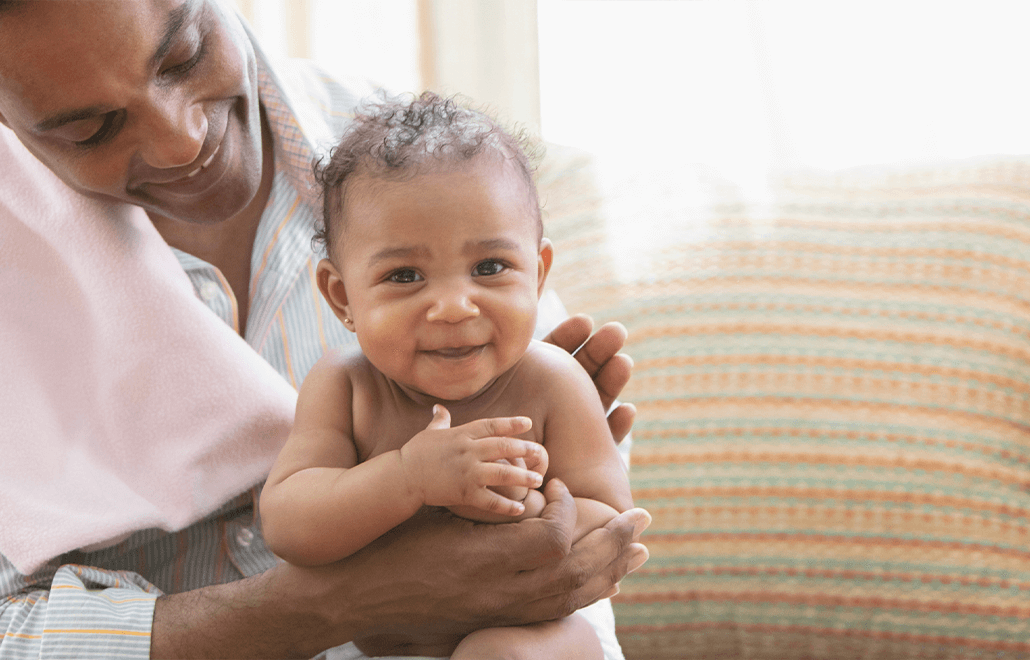
04 Sep When Do You Stop Burping a Baby?
3 min. readBurping a baby can seem like an endless task for new parents, but how do you know when it’s time to stop? Many parents find themselves asking this question at some point. Understanding when your baby no longer needs to be burped can simplify your feeding routine and contribute to a more restful experience for both you and your little one. Let’s delve into the signs that it’s time to stop burping your baby, and how to manage burping if your baby has reflux or is waking up in the night.
When Is the Right Time to Stop Burping?
Most babies are ready to stop burping between 4 to 6 months of age. However, this timeline is more about your baby’s physical development rather than their chronological age. Some babies might show readiness as early as 3 to 4 months. Here are a few signs that your baby may no longer need to be burped:
- No Burps, No Problem: If your baby doesn’t seem to burp even when you’re actively trying, this can be a clear sign that their digestive system is maturing and they can manage gas on their own.
- Content Between Feedings: When your baby is happy and content between feedings without showing signs of discomfort, it might indicate that they’re able to relieve gas naturally.
- Self-Relief: If your baby is able to relieve their own gas through movement, such as sitting up or rolling over, they may be developing the ability to manage gas without assistance.
What About Babies with Reflux?
If your baby has reflux, you might be more cautious about when to stop burping. For babies with reflux, it’s important to monitor their reactions and adjust as needed. Here are some tips for managing burping with a baby who has reflux:
- Keep the Head Elevated: Ensure that your baby’s head is higher than their tummy during feedings. This can help minimize the amount of stomach acid that might travel up the esophagus.
- Upright After Feeding: Hold your baby upright for 15 to 30 minutes after feeding to allow gravity to assist in keeping the milk down and reducing reflux symptoms.
If you have concerns about your baby’s reflux, it’s always a good idea to consult with your pediatrician for personalized advice and recommendations.
Burping and Nighttime Feedings
If your baby still requires burping during the day, they might also need it during nighttime feedings. However, if your baby shows signs of not needing burping anymore, it’s generally okay to put them to sleep after a nighttime feed without burping. Just ensure that their sleep environment is safe and comfortable.
Managing Nighttime Waking and Burping
If your baby is waking up at night and seems to need burping, it’s important to consider the causes. Burping is usually needed when air is swallowed, which often occurs during feeding or crying. It’s rare for a baby to wake up specifically due to the need to burp. If gas seems to be an issue, consider using gentle techniques to soothe your baby, and keep in mind that their digestive system typically matures enough by around 5 months to handle burping on its own.
Seeking Help for Better Sleep
If sleep is a challenge and you’re unsure how to manage burping and gas issues, there are resources available to support you. For personalized guidance, you might find my 5-24 Month Collection particularly helpful. It provides a structured plan to help your baby sleep independently and get the rest they need.
In summary, knowing when to stop burping your baby involves observing their developmental milestones and adjusting to their needs. By paying attention to the signs and using these strategies, you can ease your baby’s transition out of needing burping and focus on enjoying more peaceful and restful moments with your little one.

